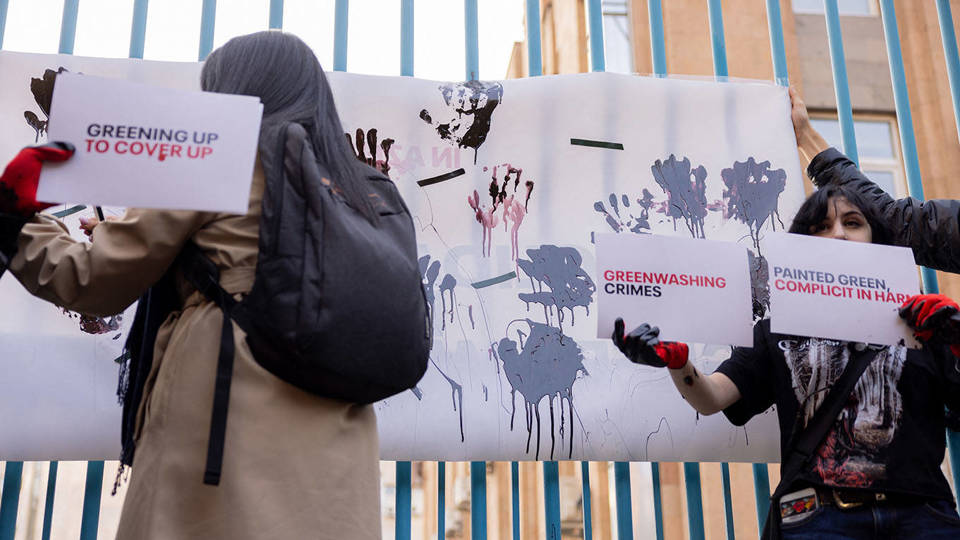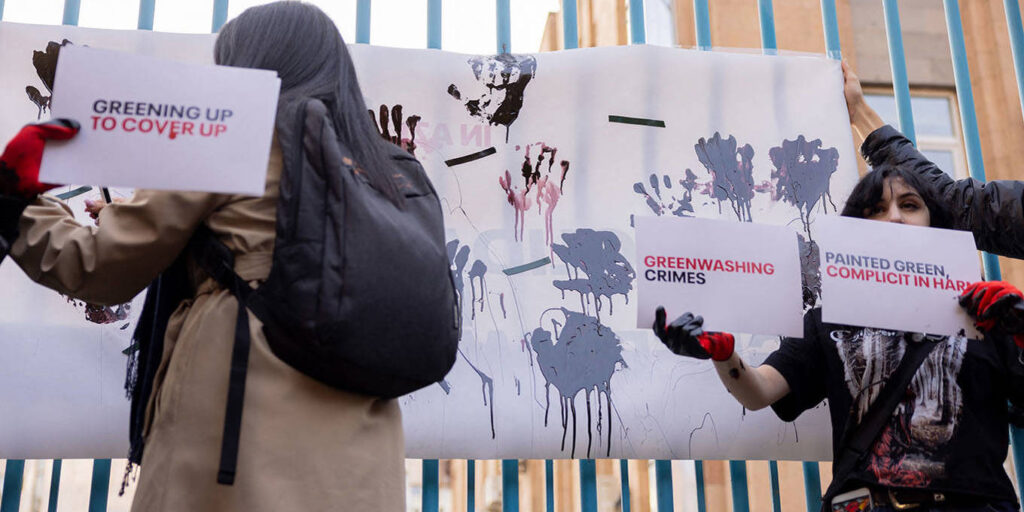
For the Azerbaijani regime, hosting the United Nations Climate Change Conference (COP29) in Baku represents a chance to obscure its poor climate record and relentless attacks on civil society. In reality, the government seems far more interested in capitalizing on rising fossil-fuel demand than in combating global warming.
ISTANBUL – On November 11, thousands of world leaders, international stakeholders, and civil-society advocates kicked off the United Nations Climate Change Conference (COP29) in Baku. With greenhouse-gas emissions rising even as global warming intensifies, this year’s summit rightly placed climate finance at the top of the agenda. But the location is far from ideal: the Azerbaijani regime is betting that it can use the gathering to greenwash its climate record and increasingly repressive policies.
After COP28 in Dubai last year, the decision to hold COP29 in the capital of yet another fossil-fuel-producing country was already met with widespread skepticism when it was announced. Critics pointed to Azerbaijan’s questionable climate policies, attacks on civil society, and poor governance, casting doubt on the summit’s credibility.
Earlier this month, Global Witness leaked a video showing Elnur Soltanov – Azerbaijan’s deputy energy minister and COP29’s chief executive – promoting the country’s fossil-fuel interests and seeking to broker deals for the State Oil Company of Azerbaijan (SOCAR). The footage has fueled concerns about the government’s commitment and capacity to increase energy efficiency or pursue long-term sustainability.
Meanwhile, the pre-trial detention of numerous civic and political activists highlights the government’s persistent disregard for human rights and civil liberties, with little indication that its approach will change anytime soon.
Although Azerbaijan has signed multiple climate agreements and adopted national plans on renewable energy and energy efficiency, it has made little progress toward meeting its climate goals. With no sustainable, long-term government programs in place, it is hardly surprising that the country has yet to set a domestic net-zero target.
That is not likely to happen anytime soon. Azerbaijan’s ongoing failure to diversify its fossil-fuel-dependent economy, combined with dwindling oil reserves and a rigid vertical governance structure, has left the country ill-equipped to achieve ambitious climate targets, such as net-zero emissions or a 30% reduction in greenhouse-gas emissions by 2030.
Secure your copy of PS Quarterly: The Year Ahead 2025
The newest issue of our magazine, PS Quarterly: The Year Ahead 2025, is almost here. To gain digital access to all of the magazine’s content, and receive your print copy, upgrade to PS Digital Plus now at a special discounted rate.
According to the World Bank’s 2022 RISE Index, which evaluates national energy policies and regulations, Azerbaijan ranked 122nd in renewable energy sources (out of 140 countries), underscoring the country’s lack of regulatory frameworks and targeted policies aimed at developing renewables. Even the primary regulatory body responsible for advancing renewable energy lacks the independence and authority to implement necessary reforms.
Undermined by centralized state control, inadequate policy frameworks, and poor implementation, Azerbaijan’s clean-energy aspirations amount to little more than empty rhetoric. In fact, the government’s top priority seems to be capitalizing on the growing demand for fossil fuels rather than addressing global warming. In his speech at April’s Petersberg Climate Dialogue, President Ilham Aliyev declared that Azerbaijan had no intention of halting fossil-fuel production, called its resources a “gift from God,” and announced plans to boost natural-gas exports to Europe. Aliyev doubled down on this approach during COP29, insisting that fossil-fuel-producing countries “should not be blamed.” For the government, COP29 appears to be more about image management and greenwashing than taking meaningful action.
While Azerbaijan’s involvement in global climate discussions is a relatively recent development, its poor human-rights record is not. The country’s decades-long authoritarian drift can be traced back to the presidency of Heydar Aliyev, who came to power in 1993 and spent a decade laying the groundwork for a dynastic regime.
By the time Aliyev’s son, Ilham, assumed power in 2003, Azerbaijan’s fledgling post-Soviet democracy had been hollowed out. International observers, including the Organization for Security and Cooperation in Europe (OSCE), decried the blatantly rigged 2003 election and every subsequent vote, including February’s snap presidential election, which extended Aliyev’s rule for another seven years.
Over the past two decades, Aliyev has further entrenched the vertical power structure he inherited from his late father, leaving public policies entirely dependent on the president’s personal preferences and directives. In 2017, Aliyev reshuffled his cabinet and appointed his wife, Mehriban Aliyeva, as the country’s first Vice President. He also installed a cadre of “capacitated technocrats” loyal to him, ensuring that his directives, passed down through senior officials, were carried out. Unsurprisingly, these changes did nothing to address Azerbaijan’s systemic governance weaknesses, identified by Freedom House as the “dominance of the executive branch,” rampant corruption, “repressive conditions inhibiting civil society,” and a government largely unaccountable to its citizens.
The regime has launched periodic crackdowns on civil society, often triggered by external events, using a range of repressive tactics, including draconian laws, physical intimidation, arrests, and blackmail. Over the past 20 years, these measures have steadily eroded civic space, forcing the remaining activists and organizations to operate under constant threat of arrest.
The 2013 crackdown on NGOs, independent journalists, civil-rights advocates, and political activists both reflected and reinforced the inability of Azerbaijan’s civil society to push back against government oppression. Although freedom of association is enshrined in the constitution, it has been severely undermined. The last sanctioned opposition rally took place in 2019; since then, all public protests have been swiftly and violently dispersed.
As world leaders and policymakers discuss climate action in Baku, dozens of journalists, experts, activists, and campaigners remain imprisoned on fabricated charges ranging from treason and smuggling to fraud and extortion. COP29 attendees are enjoying the warm hospitality of a country whose ordinary citizens – especially those who dare to challenge the regime – are often subject to far less kind treatment.

